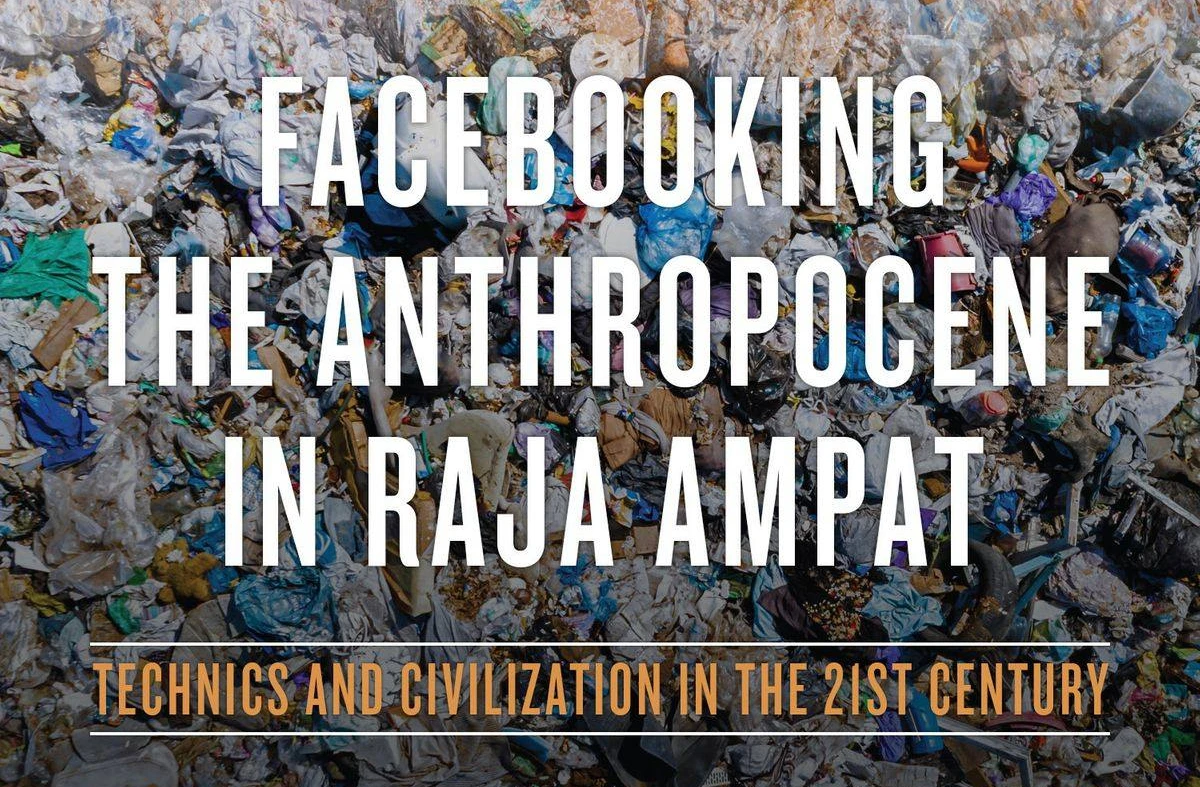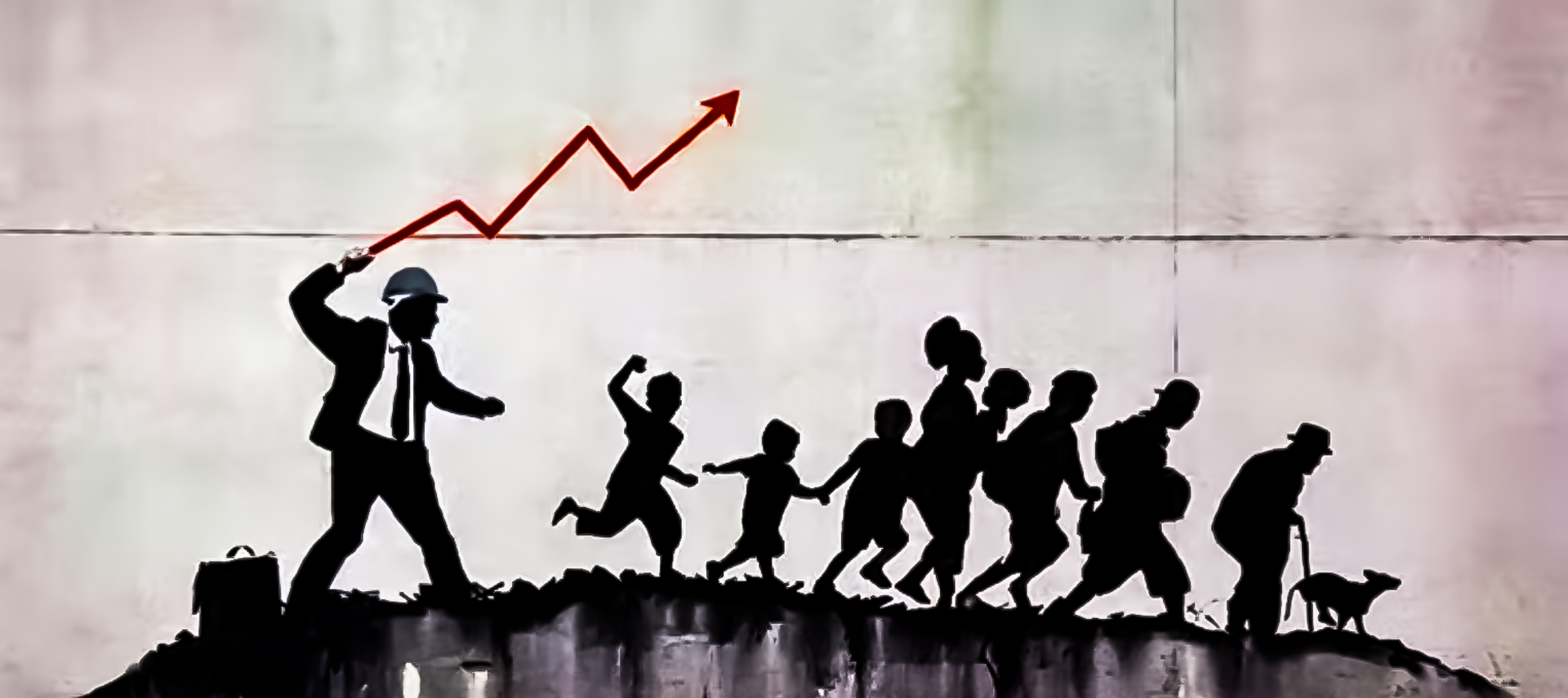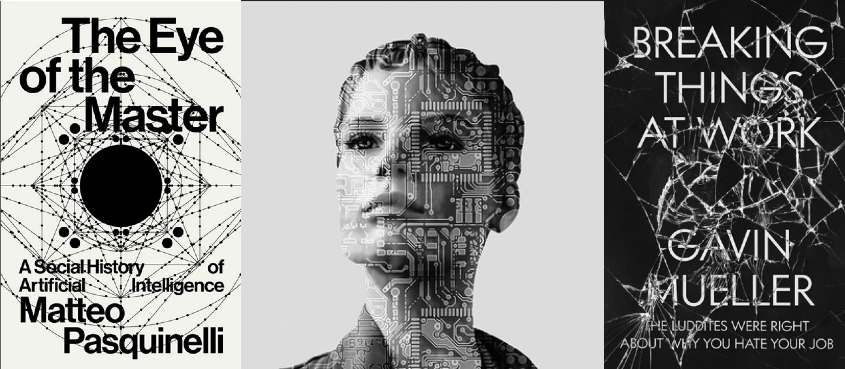automation
Six Month Pass through November 30, 2022
Online: Zoom link will be provided to registered participantsWe are now offering a six month pass for the prices of the previous 4 month passes. If you are paying for yourself and any additional person, you are now able to have two people attend all events, classes or film showings (post-pandemic) that The MEP offers.
Facebooking the Anthropocene with Bob Ostertag
Video available: https://youtu.be/EG2B_Vf1KZY
Bob Ostertag's new book, Facebooking the Anthropocene in Raja Ampat: Technics and Civilization in the 21st Century, offers a deeply intimate portrait of the cataclysmic shifts between humans, technology, and the so-called natural world. Amid the breakneck pace of both technological advance and environmental collapse, he explores how we are changing as fast as the world around us—from how we make music, to how we have sex, to what we do to survive, and who we imagine ourselves to be. And though the environmental crisis terrifies and technology overwhelms, Ostertag finds enough creativity, compassion, and humor in our evolving behavior to keep us laughing and inspired as the world we are building overtakes the world we found.
Video available at https://youtu.be/EG2B_Vf1KZY
Reading Marx’s Capital, Volume I (second series)
Online: Zoom link will be provided to registered participantsSecond series in our close reading and discussion of Marx's magnum opus, with Lisa Maya Knauer and other facilitators from the MEP's Capital Studies Group. This series covers parts 3 and 4 of Capital I, on the production of absolute and relative surplus-value.
Reading Marx’s Capital, Volume I (second series)
Online: Zoom link will be provided to registered participantsSecond series in our close reading and discussion of Marx's magnum opus, with Lisa Maya Knauer and other facilitators from the MEP's Capital Studies Group. This series covers parts 3 and 4 of Capital I, on the production of absolute and relative surplus-value.
Worn Out: Retail Workers vs. Digital Surveillance
Recording available on YouTubeBeneath the success of fast fashion, a grimmer story is told by Madison Van Oort in Worn Out: How Retailers Surveil and Exploit Workers in the Digital Age and How Workers Are Fighting Back. Going undercover in two of the world's largest fast fashion stores in New York City, she observed firsthand how data and surveillance shape the lives of the people who do the actual producing and selling.
Reading Marx’s Capital, Volume I (second series)
Online: Zoom link will be provided to registered participantsSecond series in our close reading and discussion of Marx's magnum opus, with Lisa Maya Knauer and other facilitators from the MEP's Capital Studies Group. This series covers parts 3 and 4 of Capital I, on the production of absolute and relative surplus-value.
Reading Marx’s Capital, Volume I (second series)
Online: Zoom link will be provided to registered participantsSecond series in our close reading and discussion of Marx's magnum opus, with Lisa Maya Knauer and other facilitators from the MEP's Capital Studies Group. This series covers parts 3 and 4 of Capital I, on the production of absolute and relative surplus-value.
Reading Marx’s Capital, Volume I (second series)
Online: Zoom link will be provided to registered participantsSecond series in our close reading and discussion of Marx's magnum opus, with Lisa Maya Knauer and other facilitators from the MEP's Capital Studies Group. This series covers parts 3 and 4 of Capital I, on the production of absolute and relative surplus-value.
Reading Marx’s Capital, Volume I (second series)
Online: Zoom link will be provided to registered participantsSecond series in our close reading and discussion of Marx's magnum opus, with Lisa Maya Knauer and other facilitators from the MEP's Capital Studies Group. This series covers parts 3 and 4 of Capital I, on the production of absolute and relative surplus-value.
Reading Marx’s Capital, Volume I (second series)
Online: Zoom link will be provided to registered participantsSecond series in our close reading and discussion of Marx's magnum opus, with Lisa Maya Knauer and other facilitators from the MEP's Capital Studies Group. This series covers parts 3 and 4 of Capital I, on the production of absolute and relative surplus-value.
Reading Marx’s Capital, Volume I (second series)
Online: Zoom link will be provided to registered participantsSecond series in our close reading and discussion of Marx's magnum opus, with Lisa Maya Knauer and other facilitators from the MEP's Capital Studies Group. This series covers parts 3 and 4 of Capital I, on the production of absolute and relative surplus-value.
Reading Marx’s Capital, Volume I (second series)
Online: Zoom link will be provided to registered participantsSecond series in our close reading and discussion of Marx's magnum opus, with Lisa Maya Knauer and other facilitators from the MEP's Capital Studies Group. This series covers parts 3 and 4 of Capital I, on the production of absolute and relative surplus-value.
Reading Marx’s Capital, Volume I (second series)
Online: Zoom link will be provided to registered participantsSecond series in our close reading and discussion of Marx's magnum opus, with Lisa Maya Knauer and other facilitators from the MEP's Capital Studies Group. This series covers parts 3 and 4 of Capital I, on the production of absolute and relative surplus-value.
Animals, Capitalism, Marxism: A Conversation
Online: Zoom link will be provided to registered participantsDinesh Joseph Wadiwel and Alex Blanchette explore the potential and limits of Marxist theory for addressing the roles and fates of nonhuman animals, as well as ways to connect anticapitalist struggles to animal liberation and environmental justice. Wadiwel is the author of Animals and Capital and Blanchette is the author of Porkopolis: American Animality, Standardized Life, and the Factory Farm.
AI versus Labor: Luddism and Beyond
Online: Zoom link will be provided to registered participants8 weekly sessions starting Oct 1. Is Artificial Intelligence (AI, sic) really the dire threat to the future of humanity as even some of its proponents claim, or is it a more mundane and familiar threat to working people who face loss of their livelihoods and/or further speed-up and alienation? The entire history of industrial capitalism is punctuated by recurring waves of automation to reduce labor costs and turnover time, each time provoking strong resistance by the affected workforce. This reading group will probe the history both of AI and computer technology specifically and of working-class resistance to capitalist automation in general.






